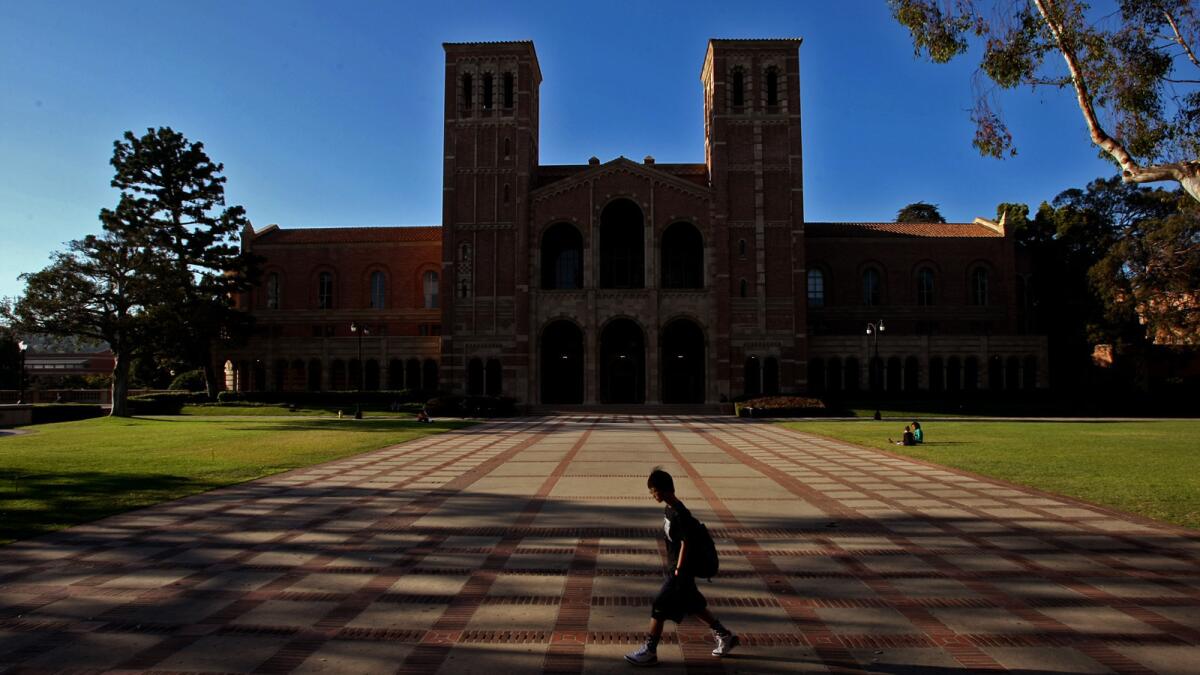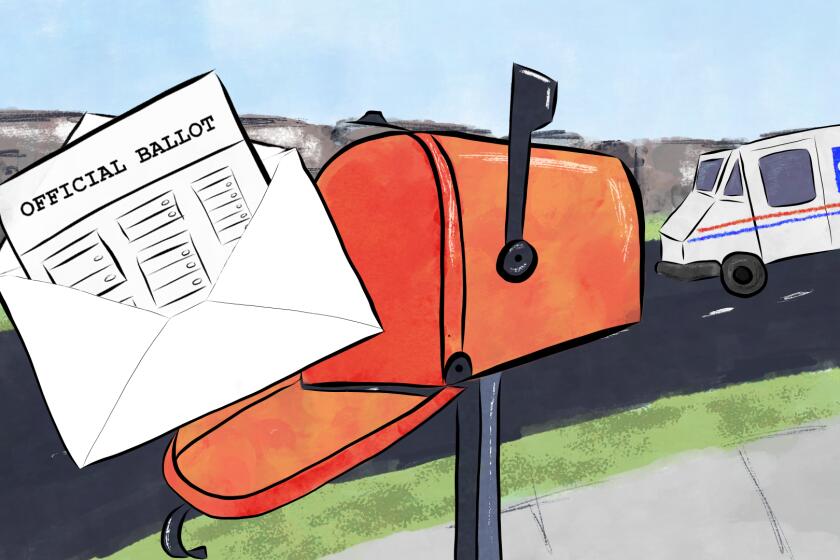Column: Are Californians serious about fighting systemic racism? Prop. 16 will tell

- Share via
In recent months, well-meaning people of all backgrounds, roused by killings and protests around the country, have vowed to fight systemic racism and reform institutions that perpetuate inequity.
Yay for us! What inspiring words!
But did we mean them?
One test will be how we vote on Proposition 16, a measure on the November ballot in California that would deal a blow to systemic racism by repealing the state’s 24-year-old ban on affirmative action in public institutions.
Unfortunately, the proposition appears to be falling far short of the support it needs. A recent poll by the Public Policy Institute of California suggests that only 31% of likely voters back the measure.
That’s particularly frustrating because the concept of “systemic racism” — otherwise known as “institutional racism” — is probably the most important idea to have been popularized in the wake of the death of George Floyd.
Sure, we may live in a society in which lynchings and poll taxes and whites-only water fountains are passé. But even if more overt forms of racism have receded from view, enormous obstacles to success — obstacles embedded in the very structure of our society and institutions — still stand in the way of many Californians of color.
Black Americans, for example, are likely to be born into families with less wealth than white families. They’re more likely to attend underperforming schools and to receive inferior healthcare. Later, they may face hiring and housing discrimination, receive lower wages than their white counterparts or have less access to credit (making it harder to buy a home). They also may face disparate treatment from police, prosecutors and judges.
These impediments to upward mobility are a direct legacy of past and present racism, and dismantling them will be a long, slow process.
But Proposition 16 is one obvious step we can can take right now. It goes straight to the heart of systemic racism.
It would repeal a previous measure, Proposition 209, which in 1996 banned affirmative action in California’s public institutions, including public colleges and universities.
After the passage of Proposition 209, the number of Black and Latino students dropped substantially at the University of California. The schools fought hard to bring the numbers back up through a variety of still-legal means, but even after 24 years, African American students remain underrepresented on UC campuses relative to their share of graduating high school seniors in California.
This gap matters because, according to an analysis by the Education Trust of census data from 2016, only 30.8% of Black Americans have earned some form of college degree, compared with 47.1% of whites. And college degrees are associated with lower unemployment and higher wages throughout life.
There are many reasons African Americans may have difficulty getting into colleges, including the fact that as children they are more likely to attend overcrowded, segregated high schools that offer less college preparation, according to a report last year by the Campaign for College Opportunity.
Furthermore, studies show that children whose parents haven’t attended college face hurdles accessing higher education and completing their degrees once they’ve begun. So the cycle of exclusion continues through the generations. That’s how systemic racism works.
Repealing Proposition 209 — by approving Proposition 16 this year — is supported unanimously by the UC Board of Regents and the trustees of the California State University, as well as by top leaders of the UC and Cal State systems.
Yet even among Democrats and liberals the ballot measure doesn’t have 50% support, according to the PPIC poll.
Many people still see affirmative action as unfair. They think it is wrong to give special preferences to people of color, just as it is wrong to give special preferences to white people.
But the two are not comparable. One perpetuates injustice; the other is designed to rectify it. And it seems pretty obvious that generations of discrimination, bigotry and mistreatment won’t be solved by simply announcing that, moving forward, admissions will be colorblind.
Instead, society needs to take active steps to bring people who have been historically excluded into the system.
Will some people lose out if other people gain? Of course. But the setting of specific quotas will remain illegal, and besides, let’s not kid ourselves into thinking that the current system is purely based on merit either. Athletes and children of donors get a leg up too, as we all now know.
It is reasonable to urge UC schools to continue giving preference to low-income students of all races. And it is understandable that some Asian American groups are concerned about the effect of Proposition 16 on their community.
But none of the concerns outweigh the benefits of opening the system to a broader and more diverse group of students, as part of a concerted effort to undo generations of systemic, structural exclusion in America.
More to Read
A cure for the common opinion
Get thought-provoking perspectives with our weekly newsletter.
You may occasionally receive promotional content from the Los Angeles Times.












